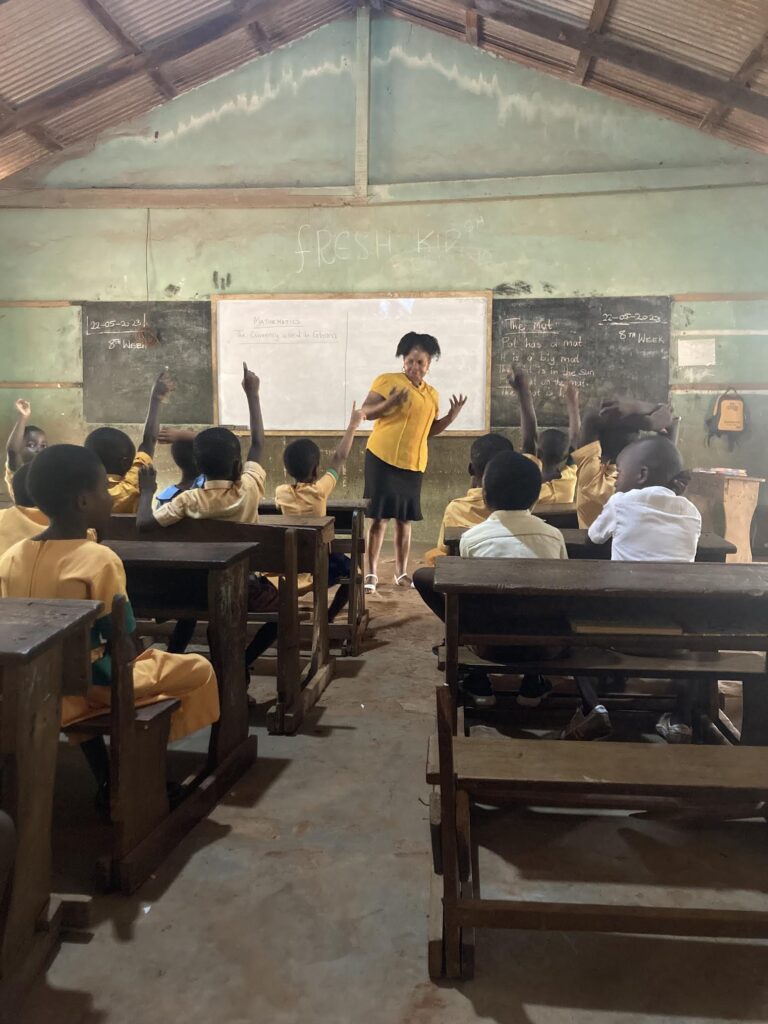Teaching Scholar Visits Ghana

Written by Piper Burton: Teaching Scholar
President: Education ClubVice President: Math ClucMajor: Elementary EducationMinor: Math and BiologyCampbell University Swim Team

The students were very responsive to their teachers and highly engaged with the same kid energy of students here in the USA. I liked how their daily schedule is set up; two hours of studying and 30-minute breaks to get food or socialize. This pattern is repeated from 8:00 am to 3:00 pm, and each subject receives one hour of focus. The purpose is to allow the students to get some of their energy out and stretch their legs while giving their minds a break. Each day of the week may vary slightly between the more elective subjects, like some of our schools in the U.S.

During our stay, I found Ghanaians very polite and welcoming, always asking how you are doing and wishing you well. The people work hard every day, not necessarily because they choose to, but to make a living they must, which is visible in the roadside stands and the markets. They laugh, dance, and sing with each other, making their smiles infectious to those around them, and many of them do so while praising God.
 For future study abroad trips to Ghana, it would be most helpful for teacher education students to conduct collaborative sessions with the Ghanaian teachers before arriving. Given the resources, we could offer arts and crafts and proper English pronunciation workshops. Overall, visiting more basic school sites and meeting as many teachers and students as possible would be advantageous.
For future study abroad trips to Ghana, it would be most helpful for teacher education students to conduct collaborative sessions with the Ghanaian teachers before arriving. Given the resources, we could offer arts and crafts and proper English pronunciation workshops. Overall, visiting more basic school sites and meeting as many teachers and students as possible would be advantageous.

